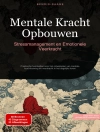This book explores psychobiography with focus on meaning making and identity development in the life and works of extraordinary individuals. Meaning-making and identity development are existential constructs influencing psychological development, mental health and wellbeing across the lifecourse. The chapters illustrate through the eyes of 25 international psychobiographers various theoretical and methodological approaches to psychobiography. They explore how individuals, such as Angela Merkel, Karl Lagerfeld, Henri Nouwen, Vivian Maier, Charles Baudelaire, W.E.B. du Bois, Loránt Hegedüs, Kim Philby, Zoltan Paul Dienes, Albertina Sisulu, Ruth First, Sokrates, and Jesus construct their lives to make meaning, develop their identities and grow as individuals within their sociocultural contexts. The texts provide deep insight into life’s development.
Spis treści
Chapter 1: Editorial: Psychobiographical Illustrations on Meaning and Identity in Sociocultural Contexts.- Chapter 2: Discovering the “I” in the “THOU”. The Psychological Effects of Psychobiographical Research on The Personality of The Researcher.- Chapter 3: The Oldest Psychobiography in The World? (Psychobiography of Socrates in The Lvov-Warsaw School).- Chapter 4: Exploring Non-verbal Communication and Body Language in Creating a Meaningful Life: Angela Merkel in Psychobiography.- Chapter 5: A Comparative Psychobiographical Exploration of the Role of Generativity in Meaning Making for Two Women in the Anti-apartheid Movement.- Chapter 6: “I As Photographer”: A Visual Narrative Analysis of Vivian Maier’s Self-Portraits.- Chapter 7: Variables Of a Life’s Equation. Contribution to Zoltan Paul Dienes’ Psychobiography.- Chapter 8: 'Aristocrat of the underground’: Karl Lagerfeld’s Romantic Self-fashioning as a Meaningful Transformation of Shame.- Chapter 9: Was British Cold War Spy and Double Agent Kim Philby a Successful Psychopath? A Psychobiographical Analysis.- Chapter 10: The Fanatic of Meaning-Making. The Psychobiographical Case Study of Loránt Hegedüs.- Chapter 11: “Everything is reparable”: A Psychobiography of Charles Baudelaire.- Chapter 12: The Elusiveness of Identity and Meaning: The Lonely Journey of Henri Nouwen.- Chapter 13: Broadening the Parameters of the Psychobiography. The Character Motivations Of The ‘Ordinary’ Extraordinary.- Chapter 14: Social Justice in Psychobiography: When That Sky Was Bluest for W.E.B. Du Bois.- Chapter 15: What we Talk About When We Talk About The Past: Discursive Psychological Analysis of Autobiographical Reminiscence in Older Irish Adults.- Chapter 16: Epilog: Reflections on the Futures of Psychobiography.
O autorze
Claude-Hélène Mayer is Professor in Industrial and Organisational Psychology at the University of Johannesburg, South Africa. Her research interests are psychobiography, transcultural mental health and salutogenesis, women in leadership, and shame.
Paul, J.P. Fouché is Professor of Counselling Psychology, Department of Psychology at University of the Free State, South Africa. Paul has published numerous articles on psychobiography. He supervises post-graduate scholars undertaking life history research.
Roelf Van Niekerk is a registered Clinical and Industrial Psychologist as well as a Master Human Resource Practitioner. He is currently Director at the School of Industrial Psychology and Human Resources at Nelson Mandela University, South Africa.












